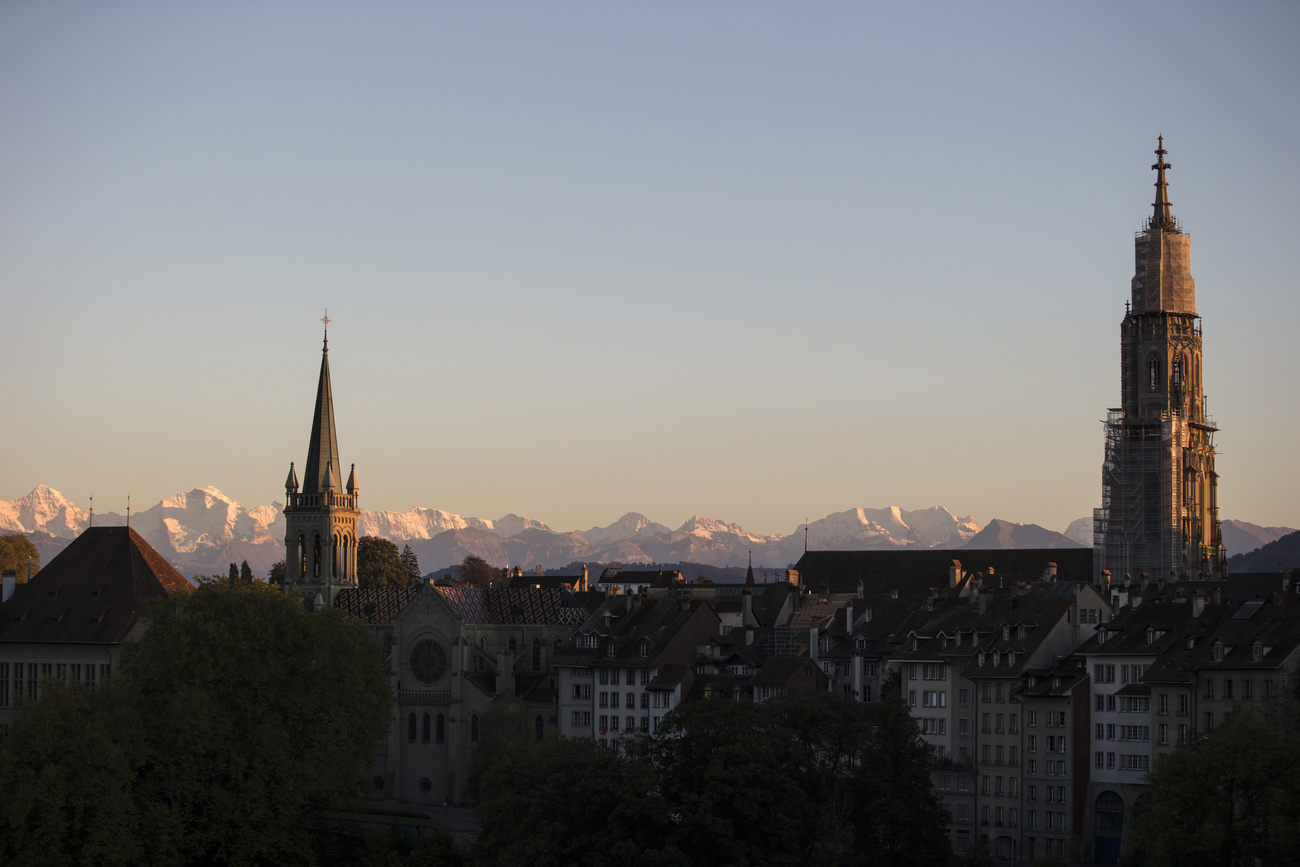
God continues to lose believers in Switzerland

Religious beliefs in Switzerland continue to splinter, diversify and ultimately dwindle. But over half the population still prays.
Those who belief in a monotheistic god, whatever form he or she might take, dropped from 46% of the population in 2014 to 40% last year, the Federal Statistical Office (FSO) said on Monday.
In a wide-ranging survey of religious beliefs, the FSO found that the number of self-declared atheists increased from 12% to 15%, while agnostics went from 17% to 18%.
This confirms long-term trends showing religious beliefs declining over the past decades. In 2000, non-believers (atheists and agnostics combined) made up just 11.4% of the population. Younger people are now increasingly likely to have no religious denomination.
That said, most people do still pray, with 55% saying they did so at least once over the course of 2019. A quarter attended a church or religious service more than five times, while another 40% said they did so between one and five times – but most of these were for social occasions like a marriage or a funeral.
Alternative practices and beliefs classified as spiritual are also on the rise. A quarter of the population said they were fans of, for example, yoga or Tai Chi or Qi Gong; around the same amount said they engaged in spiritual practices linked to personal development.
One quarter of the population also said that, though they don’t believe in one or several actual gods, they do believe in some form of higher power.
Discrimination measured for first time
As for those who do identify as religious, over 8% say they had been victims last year of discrimination as a result of their beliefs, the statistics office said.
This remains low for Catholics and Protestants (6.2% and 4.6%, respectively). However, 35% of respondents from Muslim communities said they had been victims of discrimination – most reported this in the framework of conversations, the workplace, at school, or while searching for somewhere to live.
The survey, which also looked at language-use and cultural habits, was carried out through phone interviews with over 13,000 Swiss residents.

In compliance with the JTI standards
More: SWI swissinfo.ch certified by the Journalism Trust Initiative






























You can find an overview of ongoing debates with our journalists here . Please join us!
If you want to start a conversation about a topic raised in this article or want to report factual errors, email us at english@swissinfo.ch.